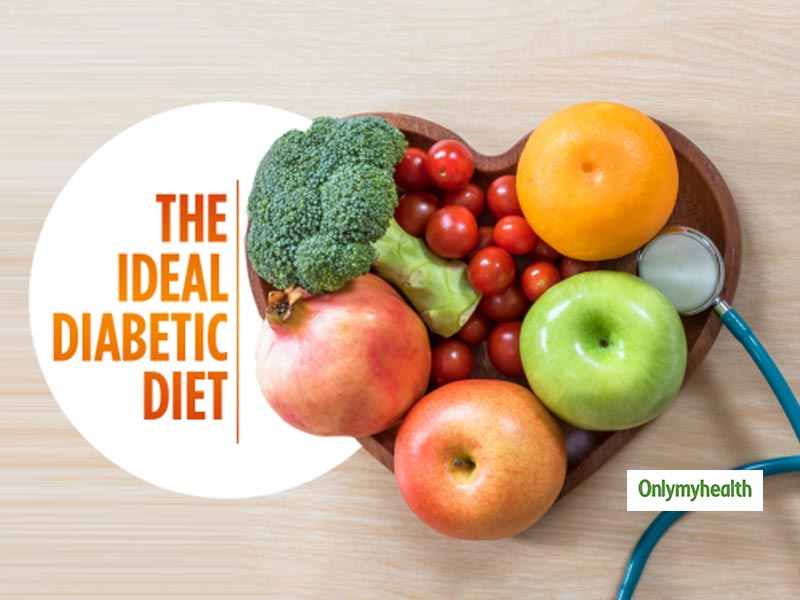
Did you know what you pick to put on your plate can increase your chances of developing diabetes or reducing them? Dr Isacc has been treating and curing patients from all around the world with chronic illnesses without any medication. This World Diabetes Day, he aims to get people to start talking about their plates and eating right. Eating right is as crucial to a healthy life as a regular fitness regime. It helps us with the energy to power our building blocks, our cells. If the raw ingredients we add to our lives are good, we’re bound to have a better experience. If not, then it would lead us towards severe, chronic disorders like diabetes. However, with the barrage of information around us, it’s sometimes hard to understand which foods are right for us and which aren’t. Misguided food myths don’t help our cause either.
Table of Content:-

Diabetes Basics
Before we address common food myths, let’s try to understand the basics of diabetes. For a healthy body, we need an influx of energy to support ourselves. This energy comes from food glucose when it’s broken by our pancreatic insulin. Diabetes kills, and that’s a fact. In fact, according to the International Diabetes Federation, 1 person dies from complications caused by diabetes every second. With India as the diabetes capital of the world, the chances of falling prey to this disorder are even higher.
Dr Isacc Abbas, Technical Head of the Rebirth Fitness School, Mumbai says, “Diabetes is a chronic disease which affects millions of people globally. When it reaches its peak, it can affect anything and everything in your body.”
First of all, let’s address the demons here. “Your risk is higher in both visceral fat and peripheral fat, which are closely linked to insulin resistance”, says Dr Isacc. Processed foods like doughnuts, muffins, cereal and candy are more likely to add weight around your abdomen than optimum nutrition. Similarly, sports and energy drinks are as bad as carbonated beverages and can only cause obesity. So, we need first to restrict processed foods and move towards natural foods as part of our diets.
Also Read: Avoid Medication, Fight Diabetes With Curcumin
Fat, Not The Enemy

Next, we need to clarify that fats are not our enemies. Low in glycemic load, nuts and seeds have anti-inflammatory effects, which can help prevent the development of insulin resistance. The myth here is that unsaturated fats are healthy fats, while saturated fats are unhealthy fats. The good and evil is actually between healthy unsaturated and saturated fats and trans-fats. While it’s true that unsaturated fats, especially from fish (like salmon and tuna) and plants sources are the best for us, we need not avoid saturated fats altogether. Having reasonable control and balance is the ideal way, and so we can add dairy and red meat to our diet.
Further, keep your eyes open around labels of low-fat and fat-free foods. These meals, usually processed, replace fat content with added sugar, raising our diabetes risk. So, do trans-fats like deep-fried foods or partially hydrogenated fats.
Fruits And Veggies On Your Plate
Next, have a look at the fruits and vegetables which you add to your plate. Fruits are excellent anti-oxidants and a nutrient-dense choice for food cravings. Three servings of fruits per day can lead to an 18% reduction in diabetic risk. Ideally, we’re told to opt for high colour items here. This is also a common food myth. While we should have fresh and whole fruits as part of our diet, but the lack of colour should not be a deterrent. Non-green vegetables like onions, garlic and peppers are essential components of diabetes prevention. These foods have almost non-existent effects on blood glucose and tons of fibre and phytochemicals.

Also Read: 5 Tips To Safeguard Your Family From Diabetes, Shares Dr Ram Ashish
Pay Equal Importance To Carbs Too
Let’s look at carbs as well. Carbohydrates can cut down on our fitness dreams, say some believers. However, let’s look at our carb sources before believing this blanket declaration. Beans and legumes are the ideal carb source, complete with low glycemic load and resistant starch, that’s not broken down in the small intestine. They also provide plant protein and soluble fibre, which can help boost our feeling of fullness.
Protein Is A Must
Last, our dependence on proteins is not as much of a food myth, but more of separating the right foods that should be our go-to for protein content. These should be eggs, beans, dairy and unsweetened yoghurt, alongside fish, shellfish, organic chicken or turkey.
With inputs from by Dr Isacc Abbas, the Technical Head of Rebirth Fitness School, Mumbai
Read more articles on Diabetes
How we keep this article up to date:
We work with experts and keep a close eye on the latest in health and wellness. Whenever there is a new research or helpful information, we update our articles with accurate and useful advice.
Current Version